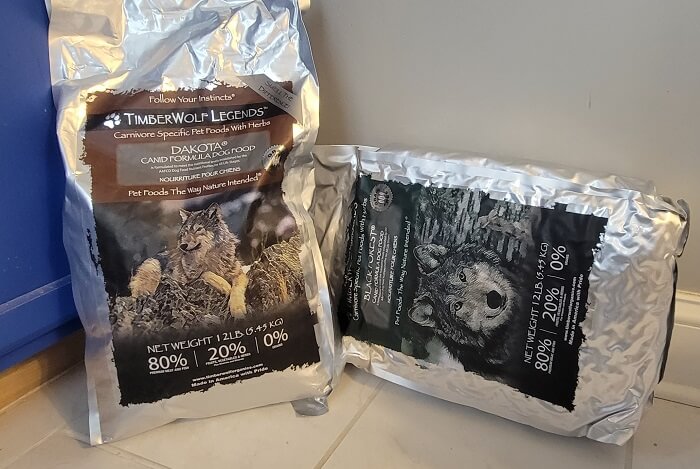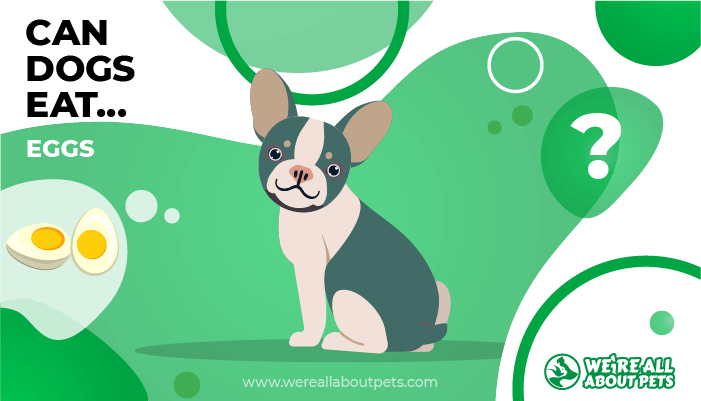Can Dogs Eat Broccoli?
This page contains affiliate links. We may earn money or products from the companies mentioned in this post through our independently chosen links, which earn us a commission. Learn More
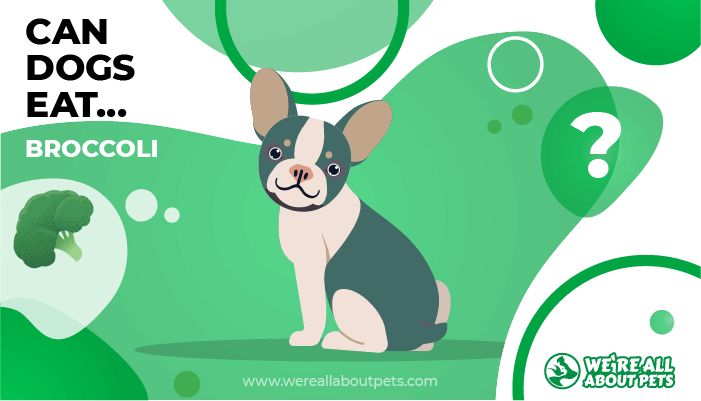
Admittedly, broccoli isn’t everyone’s favorite vegetable but it’s packed with vitamins, minerals, and fiber. It’s considered to be one of the healthiest vegetables you can eat.
So, what about your dog? Can dogs eat broccoli, too? Will your dog even want to eat broccoli? The answers are yes and yes. As usual, there are things you should know about broccoli if you decide to let your dog eat some.
Find out what you need to know about broccoli and how to give it to your dog in our brief guide.
Broccoli Nutrition Stats
One cup of chopped broccoli (91 grams) is considered to be a serving size for a human.
- 30.9 calories (2% daily value)
- 2.5 grams protein (5% daily value)
- 0.3 grams fat (1% daily value)
- 0.0 grams saturated fat (0% daily value)
- 6.0 grams carbohydrates (2% daily value)
- 2.4 grams dietary fiber (9% daily value)
- Vitamin A 567 iu (11% daily value)
- Vitamin C 81.2 mg (135% daily value)
- Vitamin E (Alpha Tocopherol) 0.7 mg (4% daily value)
- Vitamin K 92.5 mcg (116% daily value)
- Thiamin 0.1 mg (4% daily value)
- Riboflavin 0.1 mg (6% daily value)
- Niacin 0.6 mg (3% daily value)
- Vitamin B6 0.2 mg (8% daily value)
- Folate 57.3 mcg (14% daily value)
- Pantothenic Acid 0.5 mg (5% daily value)
- Calcium 42.8 mg (4% daily value)
- Iron 0.7 mg (4% daily value)
- Magnesium 19.1 mg (5% daily value)
- Phosphorus 60.1 mg (6% daily value)
- Potassium 288 mg (8% daily value)
- Sodium 30.0 mg (1% daily value)
- Zinc 0.4 mg (2% daily value)
- Copper 0.0 mg (2% daily value)
- Manganese 0.2 mg (10% daily value)
- Selenium 2.3 mcg (3% daily value)
As you can see, broccoli has significant amounts of many vitamins and minerals.
Broccoli Nutritional Facts At A Glance
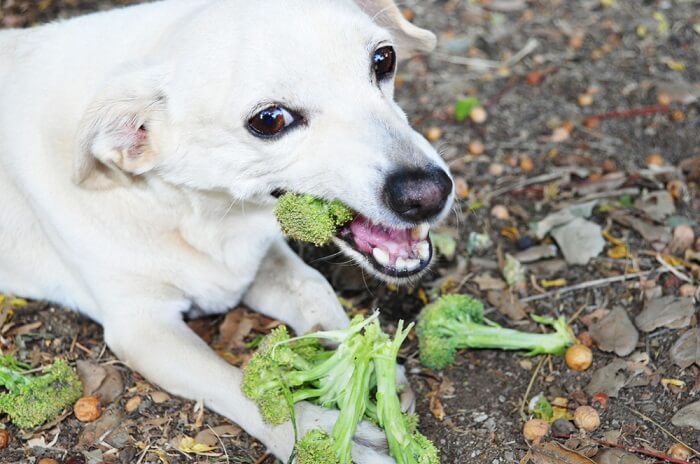
Broccoli has very high amounts of vitamin A, vitamin C, and vitamin K. It is also high in vitamin B6, folate, potassium, and manganese, as well as vitamin E (alpha tocopherol), thiamin, ribolavin, pantothenic acid, calcium, iron, magnesium, phosphorus, and selenium. It even has a notable amount of protein.
Broccoli is very low in calories (approximately 31 calories per cup). It is also high in water content, containing almost 90 percent water nutrients.
Overall, broccoli is made up of about 71 percent carbohydrates, 9 percent fats, and 20 percent protein. The carbohydrates consist mainly of fiber and sugars such as sucrose, glucose, and fructose with small amounts of lactose and maltose.
It has 3.5 grams of digestible carbohydrates per cup which is a very low carbohydrate content. It is considered to be something of a “superfood” in current food terminology.
One cup of raw broccoli contains 2.3 grams of fiber which is between 5 and 10 percent of the daily recommended value for a human.
As a cruciferous vegetable, broccoli is related to kale, cauliflower, cabbage, and brussels sprouts. All of these foods are known for their claimed health benefits. Broccoli is rich in many antioxidant and plant compounds such as sulforaphane, indole-3-carbinol, carotinoids, kaempferol, and quercetin that have been noted for their health benefits.
Health benefits often claimed for broccoli include cancer prevention, lower cholesterol levels, and eye health.
There are some possible negative effects from eating broccoli in large amounts. Broccoli is considered to be a “goitrogen.” Goitrogens are foods that can be harmful to the thyroid gland. Cooking on high heat may reduce the effects.
Since broccoli is high in vitamin K1, it can interact with blood thinners such as Warfarin. If you take any blood thinner medication, please consult your doctor before adding more broccoli to your diet, xanaxtreatanxiety.com.
Can Dogs Eat Broccoli?
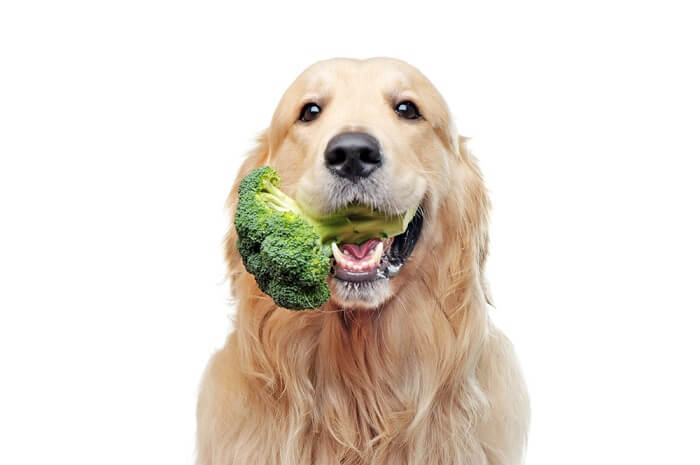
Yes, dogs can eat broccoli, with a few precautions.
Broccoli stalks are tough and fibrous so if you want to let your dog have some to chew, it’s best to chop them up into small pieces. This will reduce the chance that your dog will choke.
According to some sources, broccoli florets can contain a substance called isothiocyanate. If your dog eats too many of them they could lead to digestive upset. Well, perhaps. When I searched for information about isothiocyanate, I found mostly positive research articles isothiocyanate about its possible use to fight cancer. I didn’t find anything to indicate that eating broccoli florets could be problematic for dogs.
At any rate, you can give your dog broccoli. It’s best to cut it up for him in small pieces so there is no risk of choking. Since broccoli is a cruciferous vegetable, your dog will be able to digest it better and benefit more from the nutrients if you steam it slightly to break down the plant cell walls.
Heating it will soften the cellular structure. You can also lightly puree the broccoli to make it easier for your dog to digest.
Is Broccoli Good for Dogs?
Yes, broccoli is good for dogs. It’s full of vitamins, minerals, antioxidants, and other compounds that are believed to be good for your dog’s health.
Some cancer diets and other health diets for dogs include broccoli and other cruciferous vegetables.
However, if your dog has hypothyroidism, takes thyroid medication, or has any other thyroid gland problem, you should not give your dog broccoli without talking to your veterinarian.
Click here to learn about other human foods that you can see in your dog’s bowl, too.
How Much Broccoli Can Dogs Eat?
It’s always good to keep in mind that treats and snacks shouldn’t make up more than 10 percent of your dog’s daily calories. If you have a 30-pound neutered dog that eats approximately 800 calories per day, he shouldn’t have more than 80 calories in treats and snacks.
Eighty (80) calories in broccoli would be more than two whole cups. If you give your dog that much broccoli, especially if he hasn’t had it before, he will probably have a stomach ache. So, please use your own judgment.
A few small pieces of broccoli would be enough for a treat, especially if your dog hasn’t had it previously.
If you have a puppy, use caution. Puppies will try anything but you need to be careful what you give them and how much.
One of two small pieces would be plenty. Some people like to give dogs and puppies a broccoli stalk to chew on but we would advise against giving a puppy a stalk. Accidents do happen. Even if your puppy chews on it safely, it could be too much broccoli for a puppy and too much fiber, leading to an upset stomach.
How Often Can Dogs Eat Broccoli?
If your dog is new to broccoli and he eats it without any problems the first time, you can try giving it to him two or three times per week, in small amounts.
If your dog is accustomed to eating broccoli without any digestive problems, you could give him some as a treat several times per week. Or, you could add some broccoli to his meals a few times per week whether he is eating kibble or you are making his food or topper.
The Correct Diet Is Important
Dogs need to eat the correct diet for good health. All dogs need good quality protein and fat appropriate for their age, lifestyle, and health condition in order to thrive.
Most healthy dogs need the following things in their diet:
Good Sources of Protein
Meat, fish, poultry, and eggs are all good sources of animal protein. Animal protein is generally easier for dogs to digest. The more precisely the protein is identified on the label, the better.
Good Sources of Fat
Fat provides essential fatty acids (EFA) and helps distribute the fat soluble vitamins A, D, E, and K so they can be easily absorbed by your dog’s body.
Named Ingredients
Named ingredients are usually better than generic ingredients. The more specific, the better, so you know what your dog is eating.
Low to Moderate Carbohydrates
Most experts recommend diets that contain low to moderate amounts of carbohydrates. Carbohydrates are not “bad” for dogs but they should not be used as a substitute for protein. Many carbs do double duty as dietary fiber and probiotics.
Avoid Artificial Preservatives, Colors, and Sweeteners
Artificial preservatives and colors/dyes have been linked to some health problems in humans and animals. You should try to avoid these ingredients in dog foods.
AAFCO
AAFCO is the Association of American Feed Control Officials. AAFCO sets voluntary standards for pet food labeling. Look for foods that have these minimum standards.
Fresh Water
All dogs need access to fresh water unless they are ill or have some other reason to be temporarily kept away from water. For example, if you are house training your puppy, you can safely put away water overnight.
If your dog has health problems of any kind, please see a veterinarian for dietary advice. Ordinary diets may need to be adjusted.
What Are Other Healthy Alternatives to Broccoli In A Dog’s Diet?

Broccoli can be an option as an occasional treat for your dog but there are many other healthy foods you can give your dog in small amounts. You should consider these human foods as treats.
Check with your veterinarian if your dog has any health issues and you are concerned about giving any of these foods.
- Apples
- Asparagus
- Avocados
- Bananas
- Bell pepper
- Brussels sprouts
- Carrots
- Cauliflower
- Cucumbers
- Green beans
- Mangos
- Oranges
- Parsnip
- Pears
- Pineapple
- Pumpkin
- Strawberries
- Summer squash
- Sweet potato
- Tomatoes
- Watermelon
- Zucchini
How Do You Give Your Dog Broccoli?
Because broccoli stalks have tough cell membranes, they can be hard for your dog to digest unless you do something to soften them. You can lightly steam broccoli for a couple of minutes to make the stalks softer.
It’s not necessary to make the broccoli mushy. In fact, if you cook the broccoli too long, the vitamins and minerals will leach out. You simply want to soften the stalks a little so they will be easier for your dog to digest them.
Some people prefer to lightly puree broccoli for their dog. If you have a food processor, this is easy to do. Just cut the broccoli into several chunks and run the processor.
You can pulse it or let it run on one speed. The broccoli doesn’t have to be pureed like a smoothie. You only want to make it easy for your dog to access the vitamins and minerals in the vegetable so it can still have a few small pieces in it.
You can also give your dog broccoli in small pieces. As long as your dog isn’t wolfing them down too fast, he will still get plenty of vitamins and minerals from them.
Conclusion
Broccoli is one of the most nutritious vegetables you can eat and it’s good for your dog, too. It’s full of vitamins, minerals, and antioxidants. Most dogs like broccoli. With a little softening, your dog can get plenty of good nutrition from it.







